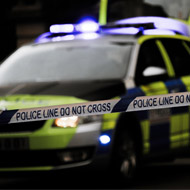
Inquest hears that dog’s urine contained high levels of the drug
A dog that mauled its owner to death had most likely ingested crack cocaine, an inquest has heard.
Mario Perivoitos died in March after receiving serious injuries from his Staffordshire Bull terrier, named Major. The incident took place at his home in North London, during which a BBC film crew were present.
According to The Guardian, an inquest heard that the behaviour of the dog could have been triggered by crack cocaine. Veterinary toxicologist Nicholas Carmichael informed the court that samples indicating high levels of morphine and cocaine were found in the dog’s urine.
He has been quoted by Mail Online as saying: “It is very likely that this dog had consumed drugs, probably eaten them. It is almost impossible to say whether that will make the dog attack, but it does make them respond abnormally.
“They become very excited and agitated. It is more likely that this attack happened because this dog had taken cocaine.”
Pathologist Dr Julie Higgins added: “The body included injuries to the neck and face with extensive haemorrhaging and the larynx was crushed.”
The BBC had been filming with Mr Perivoitos for the television series ‘Drugs Map of Britain’ when he suffered a seizure. The court learned that Joshua Haddow, the programme’s producer, was able to pull Major off his owner, but it was too late to save him. The dog had crushed his owner’s larynx, causing him to lose huge amounts of blood.
Andrew Walker, the senior coroner, deduced that Mr Perivoitos died as a result of his injuries He also told the inquest that the victim had taken cocaine before the attack occurred.
“It is likely that he was experiencing an epileptic shock which caused the dog to nip his face before biting his neck,” he said. “The film crew telephoned an ambulance whilst attempting to get the dog off Mr Perivoitos. “It is likely that the dog had consumed cocaine by eating it and it is likely that this was an additional factor in the dog's behaviour.”
Mr Walker thanked Joshua Haddow and his colleagues for their effors to save Mr Perivoitos. The police told the court that Major was due to be euthanised.



 The RCVS has announced a new version of its 1CPD mobile app, with enhanced features for veterinary surgeons and veterinary nurses to record their continuing professional development.
The RCVS has announced a new version of its 1CPD mobile app, with enhanced features for veterinary surgeons and veterinary nurses to record their continuing professional development.